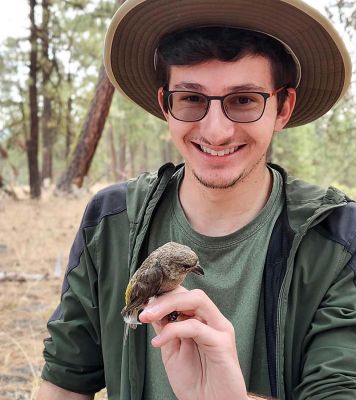UI-led researchers receive $6 million to study rural perception of climate change
Published 5:15 am Wednesday, August 9, 2023

- Alessa
MOSCOW, Idaho — How people in rural communities perceive climate change — as it relates to extreme heat, wildfires and drought in particular — is the focus of a research project slated to receive $6 million.
The research, led by the University of Idaho, will focus on how rural residents’ perceptions impact their ability to adapt.
Trending
An understanding of how human perceptions drive decision-making can guide policymaking that improves the resilience of using resources that are central to global stability, according to a UI news release.
Rural communities are the study’s focus largely because they have been left out of climate-adaptation discussions even though they provide most of the country’s food, energy, water and habitat, researchers said.
“Dialogues and policy making occur mostly in urban areas, but rural communities are our make-or-break for adaptation to environmental change,” Lil Alessa, co-director of UI’s Center for Resilient Communities and the project’s principal investigator, said in the release.
Under the National Science Foundation’s Established Program to Stimulate Competitive Research Track 2, funding over four years will provide about $2.44 million to UI. The University of Nevada-Reno and the University of South Carolina each will receive about $1.78 million. The award is one of 11 issued nationwide this year.
The researchers will partner with local, state, tribal and federal organizations in rural communities.
The project, “Where We Live: Local and Place-Based Adaptation to Climate Change in Underserved Rural Communities,” will address how perception drives adaptive capacity and adaptation. The capacity component is the potential to take action to minimize the negative effects of climate change. Adaptation refers to taking actions.
Trending
A goal is to “enable better adaptation planning by showing how a variety of small changes can enhance climate resilience in rural, underserved communities that are central to our nation’s sustainability and security,” said Loretta Singletary, UN-R’s principal investigator.
When rural communities are challenged by climate-sensitive hazards such as heat, drought or wildfires, “their recovery is limited because they lack the capacity to adequately prepare for, respond to, and adapt to these threats,” said Susan Cutter, who leads the University of South Carolina team. “Understanding the perspectives of rural areas in our three states as they confront these challenges is critical to expanding and accommodating the diversity of resilience experiences seen across the nation.”
Adaptive capacity is high, “but implementing those changes falls short for a variety of reasons,” UI’s Alessa said. “The good news is that successful adaptation is entirely possible. It is the will to do so that is dependent on perception.”









